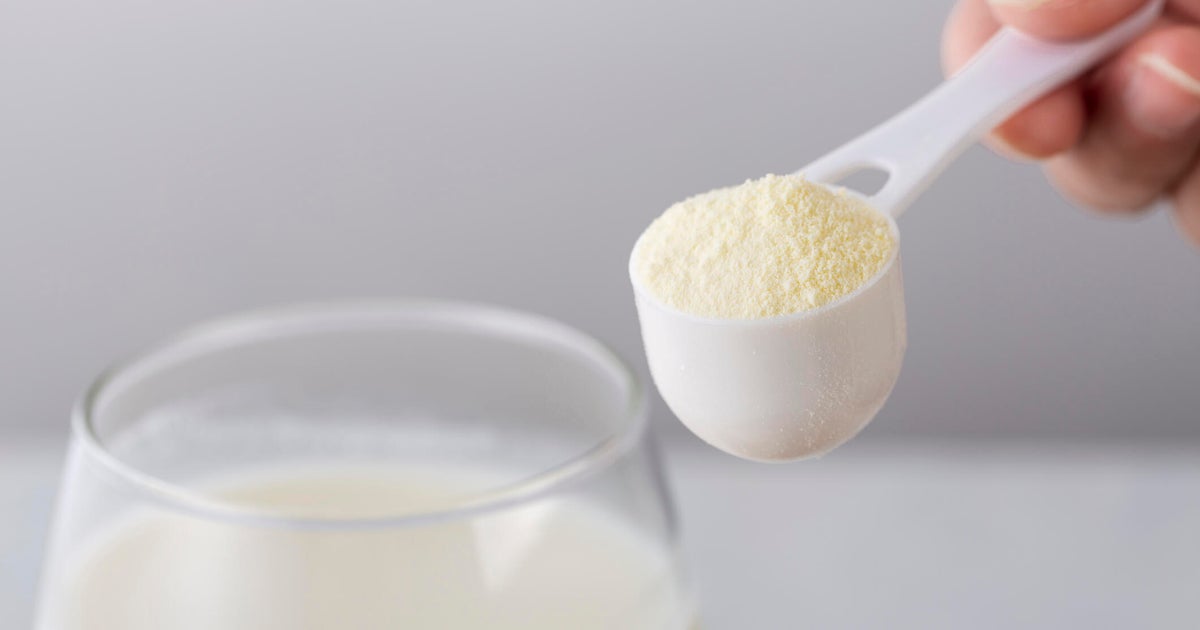Prior to publication, CR contacted the manufacturers of all 23 products we tested and shared with them our results and methodology. Seven companies did not respond to our requests for comment: BSN, Dymatize, Jocko Fuel, Muscle Milk, Owyn, PlantFusion, and Transparent Labs. Optimum Nutrition declined to comment, and Huel did not respond to questions about the amount of cadmium found in its product.
Of those that responded, many say that lead is a naturally occurring element that is difficult to avoid, particularly in plant-based products. Eight companies—Equip Foods, Garden of Life, KOS, Momentous, Muscle Meds, Muscle Tech, Orgain, and Vega—say they test both their ingredients and finished products for heavy metals.
A spokesperson for Huel says that its ingredients undergo “rigorous testing” and that the company is “confident in the current formulation and safety of the products.” Naked Nutrition sources its ingredients from “select suppliers” that provide documentation attesting that they were checked for heavy metals, says James Clark, chief marketing officer. “We take our customers’ health very seriously,” he says, noting that Naked Nutrition has requested a third-party test of its Mass Gainer powder in response to CR’s findings.
John Koval, a spokesperson for Abbott, which makes Ensure, says that the lead levels CR found in its shakes are low for a product made with plant protein and that “consumers can be assured the product is safe.” A spokesperson for Quest says that the levels of lead CR detected in its products are “evidence that our robust food safety programs are working effectively.”
Spokesperson Allie Droze says that Vega “complies with all required safety standards and regulations” and that CR’s cadmium findings are “inconsistent” with the company’s regular testing results. She adds that the firm operates under California Proposition 65 consent decrees—legally binding settlement agreements that may allow companies to adhere to higher thresholds.
Such agreements are typically signed to resolve claims that a company violated a California law requiring that businesses warn consumers before exposing them to certain harmful chemicals. In total, Vega has paid about $336,000 in penalties to resolve allegations made in 2013 and 2018 that its products contained high levels of lead, cadmium, or other heavy metals without appropriate warning. As part of the settlements, Vega admitted no wrongdoing.
Earlier this year, Vega renamed the plant-based protein powder we analyzed and changed its sourcing practices for a key ingredient. The company now sources its pea protein—which is the first listed ingredient in the rebranded Vega Protein + Recovery—from North America instead of China. “Because naturally occurring heavy metal levels in plant proteins can reflect the soil in which crops are grown, this sourcing change is relevant to any testing considerations,” Droze says.
Momentous also recently conducted a “massive overhaul” of its products to improve sourcing and “clean up formulas” for its dairy and plant-based protein powders, says spokesperson Will McClaran. “The Momentous products [CR] tested have been discontinued and are no longer commercially available,” McClaran says. (Discontinued products are marked with a footnote in the chart above. We included them in our results because protein supplements have a long shelf life and consumers may still have them in their pantries.)
Spokespeople for Garden of Life US and Orgain say their products are safe for daily use despite CR’s recommended limits. They also specified that the companies’ limits for heavy metals are determined by closely following the latest food safety guidance from the FDA, EPA, World Health Organization, and European Food Safety Authority.
Most of those organizations do not have limits or guidelines for heavy metals in protein powders or dietary supplements, particularly with regard to lead. The EPA does not regulate lead levels in food but has set an action level of 10 parts per billion for lead in tap water. (The concentration of lead we found in the Garden of Life and Orgain products was 61 and 15 ppb, respectively.) The FDA has not set any action levels for lead in protein powders or shakes. The WHO has published no guidance on lead in supplements and, through its joint committee with the Food and Agriculture Organization of the United Nations, has said there is no level of lead that is safe to consume weekly. The maximum amount of lead permitted in food supplements according to the EFSA is 3,000 ppb (3 mg/kg), a level that CR’s food safety experts say is far too high to be health protective.
Momentous and Vega say their products are independently tested to ensure they meet standards set by the the National Sanitation Foundation, a nonprofit public health organization. To obtain certification by the NSF, dietary supplements must adhere to the group’s limits of 10 micrograms per day for lead and inorganic arsenic, and 4.1 micrograms per day for cadmium.
Muscle Meds says it tests its products to ensure compliance with a similar lead limit, 10 micrograms per serving. Naked Nutrition says it is “in the process of obtaining” NSF certification.
We also shared our results with the FDA and asked about its oversight of the protein supplement industry. A spokesperson says the agency monitors contaminants in protein powders and shakes through its toxic element compliance program, special FDA surveys, and through a cooperative agreement with the states for laboratory funding.
“We will review the findings from Consumer Reports’ testing along with other data we have collected to better inform where to focus our testing efforts and enforcement activities,” the FDA spokesperson says.
Source link
